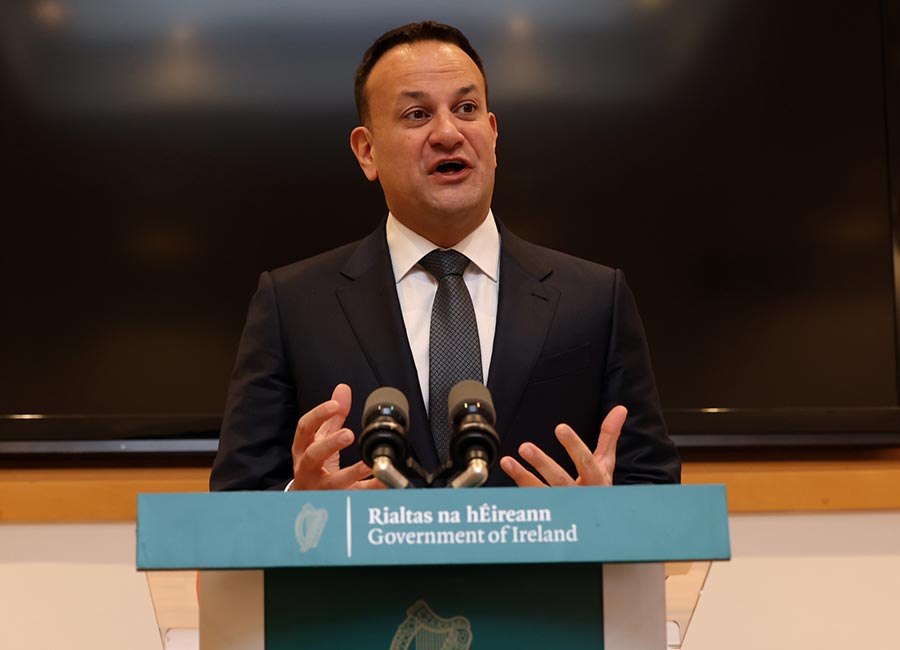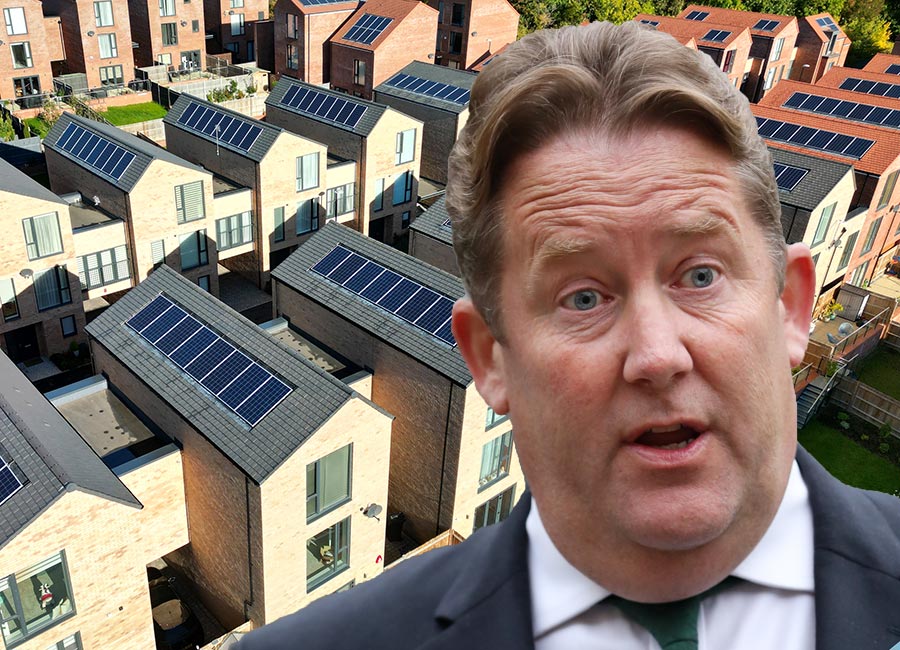A key part of the Government's housing strategy that aimed to deliver 5,000 apartments is "too small" and struggling to attract developers, officials have said.
The €450m Croí Cónaithe scheme, launched last May, was touted as a 'crucial' part of the Government's housing response by Taoiseach Leo Varadkar.
It aims to bridge the "viability gap" between the cost of building apartments and their market sale price.
But in December, mere months after it launched, officials warned incoming Public Expenditure Minister Paschal Donohoe that the scheme was struggling to attract developers and was "too small" to bridge the cost of delivering the homes.
In a briefing note for Mr Donohoe, civil servants warned that the scheme was unlikely to be as successful as hoped and warned reaching the Government's 2023 target of delivering 29,000 homes would be "challenging".
It said: "The Croí Cónaithe (CC) cities initiative was introduced in 2022 to address the viability gaps for apartments. A fund of €450m is available to support the delivery of up to 5,000 apartments up to 2025. However, the size of the initiative is likely too small to address the scale of viability issues and a complex scheme design has meant a lower than anticipated interest from developers."
The briefing note also warned that it was "unclear" whether the sister scheme, the Croí Cónaithe towns scheme, would deliver the scale of supply required, given they have only been recently introduced.
The withering assessment of housing policy by officials will come as an early setback for Mr Varadkar.
When he resumed the role of Taoiseach in December, the Fine Gael leader vowed a 'Covid-style' response to the housing crisis.
Addressing the issue will be key for the Government parties as they seek to stifle Sinn Féin's bid to enter power for the first time at the next election. The briefing also cautioned the Government over relying on the private sector to help reach its 2023 targets.
It noted: "Achieving the overall delivery target of 29,000 new units will be challenging as there are emerging signs of headwinds relating to high construction costs, capacity constraints, rising interest rates and supply chain disruptions."
The Housing Agency, which is tasked with delivering the Croí Cónaithe cities initiative, is unable to say how many apartments are likely to benefit from the scheme.
The maximum funding that is available for each apartment is €120,000. Housing Minister Darragh O'Brien has described Croí Cónaithe as "a key action in the Government's Housing for All plan".
Earlier this month, Michael McGrath, the new Finance Minister and formerly the public expenditure minister, said the scheme was where the Government was placing its focus in regards to addressing viability issues in the construction sector.
He said: "We do have the Croí Cónaithe cities fund and that is the vehicle really through which we need to try and deliver high density schemes."

In December, Taoiseach Leo Varadkar said the scheme would be "crucial" in addressing viability issues.
He told reporters: "I think that [Croí Cónaithe] is going to help.
"A lot of builders will say to us that they're not able to proceed with apartment developments, in particular that they have permission for, because it's not financially viable.
"I often say that there are, I think, about 70,000 planning permissions out there for new homes, mostly apartments, but they're not activated or not being built and I want to see them under construction." It is understood that industry figures have long said the scheme would not work as intended and earlier this month developers told Mr Varadkar at his housing summit that they needed to see any subsidies committed to up front before construction began on sites.
A Department of Housing spokeswoman said: "The initial expression of interest has yielded a positive return. On receipt of applications, the Housing Agency has been actively undertaking the various appraisal stages. Alongside this, the scheme is currently subject of an application in respect of State Aid to the EU's Directorate-General for Competition (DG COMP), with a decision due shortly."
The Department of Public Expenditure and Reform warnings are only one of a range of "dire" warnings about the housing sector, according to Sinn Féin housing spokesman Eoin Ó Broin.
The note warns the growth in completions has been driven by private sector delivery, as social and affordable housing delivery targets have "struggled to be achieved". The reliance on private sector delivery is a "vulnerability, particularly as the outlook for 2023 delivery has started to shift downward," it stated. The briefing also flagged that viability issues were affecting a number of different delivery streams, including Build to Sell, Build to Rent, Student Accommodation and Cost Rental delivery.
The briefing said these issues have worsened due to the rise in construction costs and the increase in interest rates.
Civil servants warned: "Chasing viability gaps is not sustainable and does not address the core structural issues around the cost of construction and affordability."
The note also said the Department of Housing had an underspend of around €1bn.
Mr Ó Broin has called on Mr O'Brien to explain the "scandalous underspend" amid an "escalating homeless and housing crisis," with homelessness at "record levels".
When discussing housing last month Mr Varadkar said: "I think sometimes in Government we're too willing to say that things can't be done - because of public finances, because of state aid rules, or because of the Constitution or something else.
"I'm not willing to accept that, when it comes to housing, we need to turn the corner on housing, it is an emergency, it's affecting people in so many different ways.
"It's holding us back as a country and it's causing intergenerational division that I don't like to see.
"So, you know, it's really going to be a case of let's do everything, unless there's a really good reason as to why we can't."
The pressure on housing has been made more acute by the war in Ukraine, which has seen 55,000 refugees housed by the State.
The Taoiseach said long-term housing solutions for refugees are required, adding: "I think a lot of them are going to stay, they're going to be here for the medium to long term."








